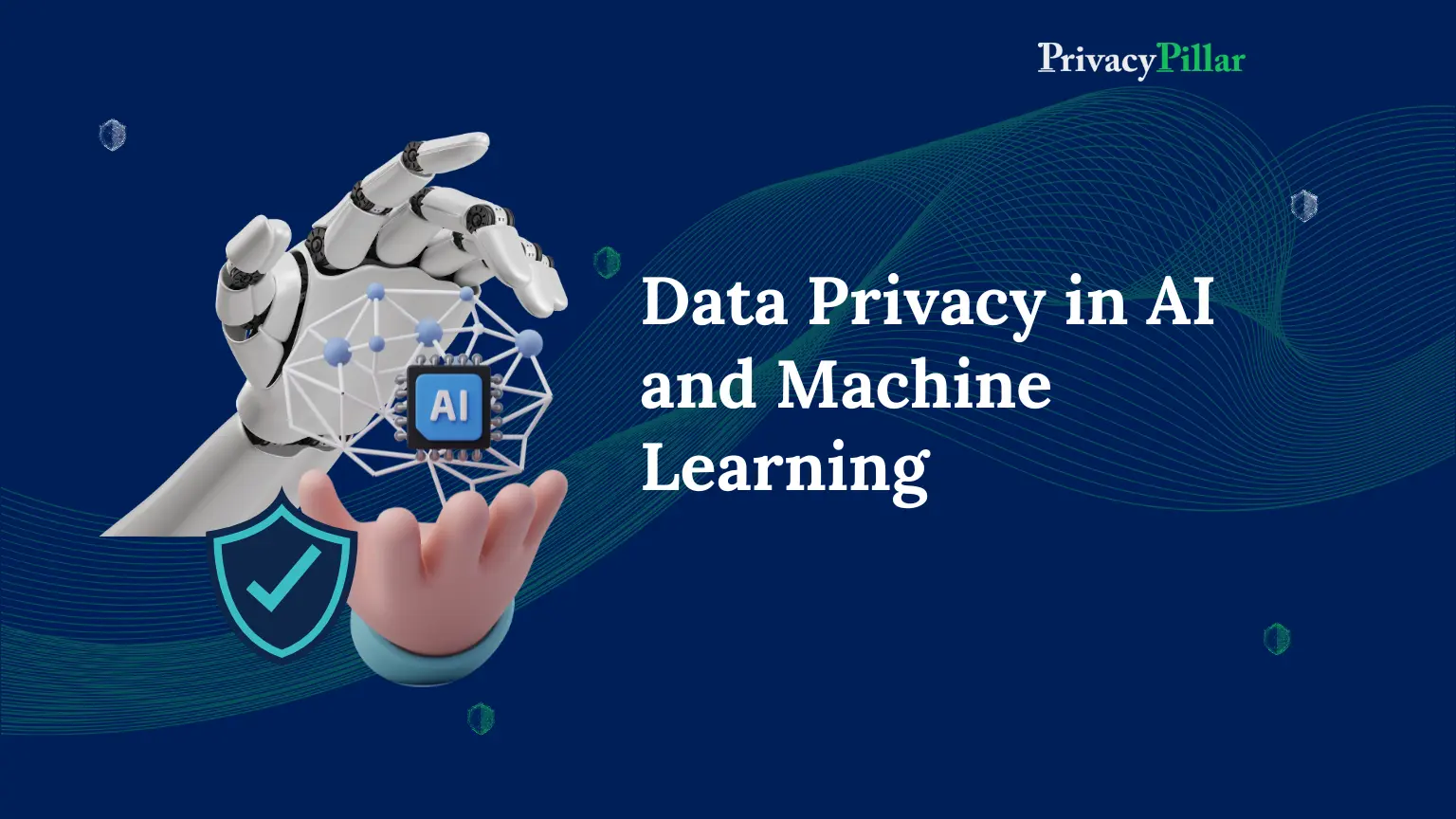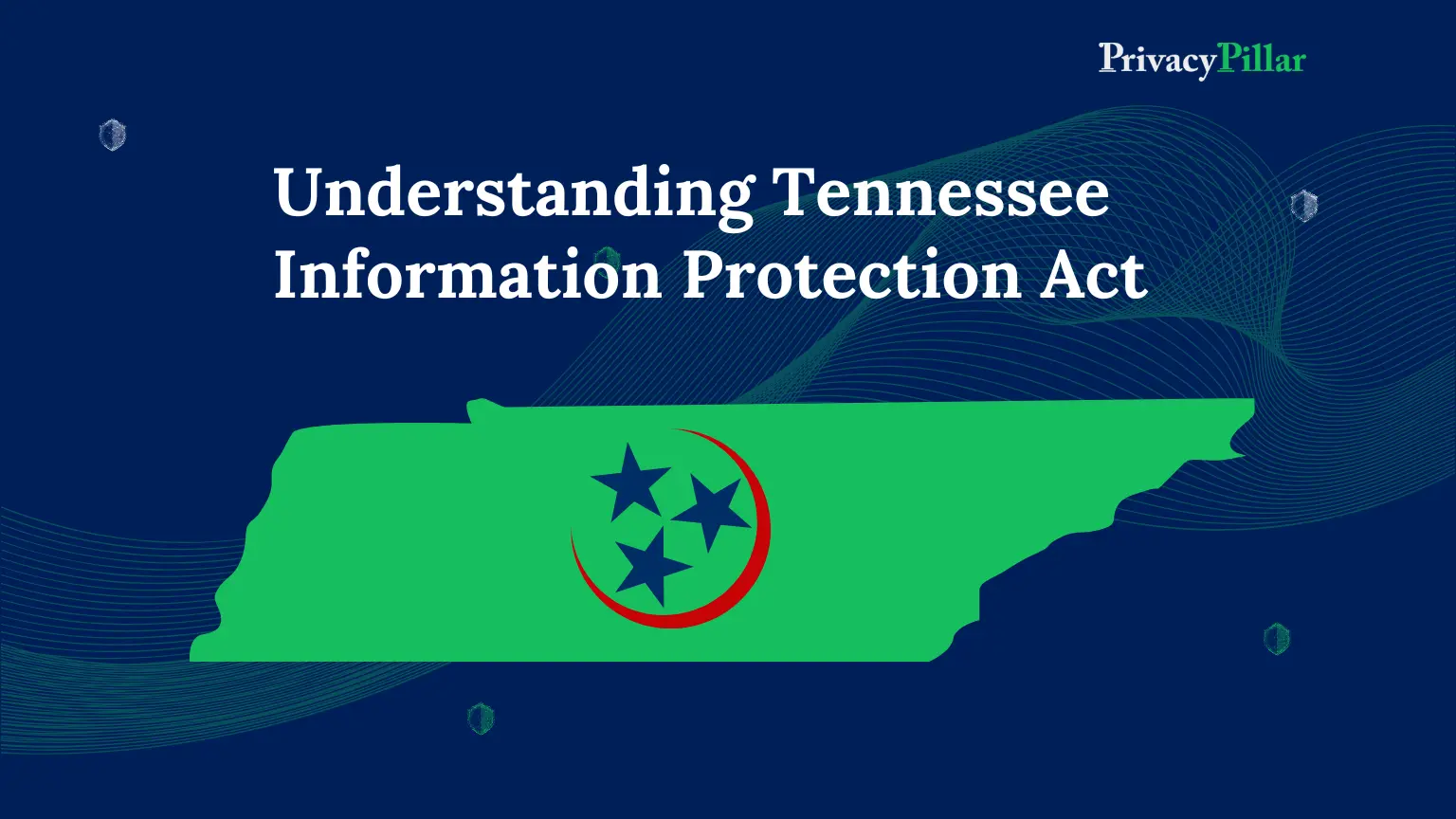
Data Privacy in AI and Machine Learning
Maintaining data privacy in AI and Machine Learning is a big challenge as Artificial Intelligence (AI) and Machine Learning (ML) are rapidly transforming every industry, including how businesses manage and protect personal data. As data privacy becomes more important, it is essential for business owners and privacy professionals to understand how AI and machine learning fit into this area. This article looks at the challenges of complying with data privacy in AI and machine learning. It provides useful information on how companies can use these technologies to meet legal requirements and protect personal data.
AI and Machine Learning: A Brief Overview
AI refers to machine’s ability to do tasks that require human intelligence such as decision-making, problem-solving and recognizing patterns. Machine Learning (ML) is a part of AI that helps systems to learn from data without any requirement of detailed programming. These technologies are changing industries like healthcare and finance and also have a growing effect on data privacy.
For example, AI can help businesses by automating the classification of data, sorting it into categories such as sensitive and non-sensitive. Additionally, machine learning algorithms can find patterns in how this data is used, helping to detect potential privacy risks or unusual behavior.
The Challenges of Data Privacy in AI and Machine Learning
AI and Machine Learning can improve how we protect personal data, but they also create serious challenges for data privacy. These technologies are meant to secure our information, yet they introduce new risks:
Data Security Risks
AI systems require large datasets for training. These datasets often include personal information, increasing the risk of data breaches or unauthorized access. Hackers may target AI systems because of the sensitive information they hold, making robust security measures necessary.
Thus, companies should implement encryption and anonymization techniques to protect personal data used in AI training. AI models should also undergo regular audits to ensure compliance with privacy regulations.
Bias in AI Models
AI models rely on the data used to train them. If this data has biases, then the AI will reflect those biases which can lead to unfair results. For example, biased data in customer profiles can cause unfair decisions in finance or hiring.
Businesses must prioritize diversity in training datasets and implement bias detection algorithms to ensure fairness. Transparency is key—companies should be able to explain how AI-driven decisions are made.
Lack of Transparency (Black Box Problem)
One of the significant issues with AI systems is the “black box” problem, where it’s difficult to understand how AI models make decisions. This lack of transparency can create trust issues between businesses and consumers, particularly when it comes to sensitive data.
Companies should implement explainable AI (XAI), which makes AI models more transparent. This allows businesses to provide explanations for AI-driven decisions, thereby encouraging trust and accountability.
Data Ownership Concerns:
As AI systems analyze large datasets, questions about data ownership appear. Who owns the data used by AI models? If a business shares or sells data for AI purposes, does the individual keep control over their personal information?
Clear policies for data ownership and user consent are crucial. Companies should obtain explicit consent before using personal data for AI and give individuals the right to revoke that consent.
How Privacy Laws Address Data Privacy in AI and Machine Learning
Privacy laws worldwide are evolving to address the impact of AI on data protection. Many regulations now include specific provisions for automated decision-making and profiling, with a focus on protecting consumer rights.
General Data Protection Regulation (GDPR)
GDPR is one of the most comprehensive privacy regulations, and it explicitly addresses AI’s role in data privacy. GDPR requires businesses to inform individuals if automated decision-making (e.g., AI-driven profiling) is being used and give them the right to opt-out or request human intervention. Article 22 of the GDPR ensures that individuals are not subject to decisions made solely by automated processing that significantly affect them, such as loan approvals or hiring decisions.
For example, in the automotive industry, a company using AI to decide loan eligibility for car financing must inform customers that an automated process is in place and give them the right to challenge the decision if it affects them negatively.
California Consumer Privacy Act (CCPA)
The CCPA empowers consumers to take control of their personal data, including how businesses collect, share and sell their information. While CCPA doesn’t directly address AI, it regulates how personal data used in automated processes must be handled. Companies must give consumers the ability to opt-out of the sale of their personal data and ensure transparency in their data practices.
If a company uses AI for targeted advertising based on consumer data, CCPA mandates that customers must be given an option to opt-out of such data collection and usage.
The EU AI Act
The EU AI Act, proposed in 2021, is a landmark effort to regulate AI comprehensively across the European Union. This regulation aims to ensure that AI systems are used responsibly and ethically, particularly those that could affect fundamental rights such as privacy. The Act introduces a risk-based approach, categorizing AI systems into unacceptable, high-risk, limited risk and minimal risk. High-risk systems such as those used in biometric identification, critical infrastructure or healthcare, must comply with strict transparency and accountability requirements.
If a car manufacturer uses AI-based facial recognition for unlocking vehicles, the system would be considered high-risk under the EU AI Act and subject to transparency and testing to ensure compliance with privacy and ethical standards.
Brazil’s General Data Protection Law (LGPD)
The LGPD is Brazil’s regulates how personal data can be collected, processed and shared, including through automated systems. Like GDPR, LGPD gives individuals the right to be informed about automated decision-making processes, request clarification and to challenge decisions made solely by AI.
A car rental company using AI to profile customers for personalized promotions in Brazil must comply with LGPD’s transparency requirements, ensuring customers understand how their data is being used and processed by AI.
Canada’s Consumer Privacy Protection Act (CPPA)
Canada’s CPPA, which will replace PIPEDA, strengthens privacy rights. It mandates transparency when businesses use AI to make significant decisions that affect consumers, such as credit approvals or insurance underwriting. The CPPA will require businesses to explain how decisions are made and allow individuals to challenge them.
India’s Digital Personal Data Protection (DPDP) Act:
India’s DPDP Act provides comprehensive data protection rules, including automated decision-making. The Act emphasizes informed consent, transparency and user rights over personal data, which applies to AI-driven decisions that could affect individuals, such as automated profiling.
Solutions for Managing AI and Data Privacy: Consent Management Platforms
As more businesses use AI technologies, it is important to comply with data privacy laws. A helpful tool for managing these challenges is a Consent Management Platform (CMP). CMPs help organizations manage user consent effectively. They ensure transparency and compliance with privacy laws like GDPR, CCPA, PIPL, etc. Let’s look at how CMPs can help address privacy issues related to AI:
Automating Consent Collection and Management
With AI-driven data processing, obtaining and managing user consent becomes complex, especially when data is used for multiple purposes. A CMP automates the entire consent process, from initial data collection to ongoing management, ensuring that businesses stay compliant. The platform allows users to easily opt-in or opt-out of data collection practices, including AI-powered systems, and records their preferences in real time.
Consent Preferences:
AI systems use data for several reasons, like personalizing experiences or assessing risks. A Consent Management Platform (CMP) helps businesses give users control over their data. Users can choose which AI processes they agree to. For instance, a user might agree to data collection for personalized recommendations while opting out of automated decision-making systems, such as AI-driven credit scoring.
Automated Data Subject Access Requests (DSARs):
Privacy laws like GDPR and CCPA require businesses to allow users to access, rectify, or delete their data. AI-driven systems complicate these requests, as the data processed by AI can be vast and complex. A CMP can automate the DSAR process, enabling users to request access to their data or delete it with minimal effort. The platform can track these requests and ensure compliance with the right to be forgotten or the right to access provisions of privacy laws.
Consent Auditing and Reporting:
AI introduces new complexities for regulatory compliance, especially regarding the need to prove consent. Consent Management Platforms (CMPs) assist businesses by creating detailed audit trails that record every user’s consent actions, including updates to preferences and withdrawals of consent. This functionality simplifies compliance during audits and helps businesses respond effectively in case of data breach.
Managing Consent for AI-Based Cookies and Trackers:
AI technologies often rely on cookies and other tracking mechanisms to collect user data for personalized services. A CMP can help businesses manage consent for AI-driven cookies, ensuring that customers are informed about how their data is being tracked and used. This solution aligns with the requirements of laws like GDPR, which mandate clear and specific consent for cookies.
Conclusion
AI and ML are powerful tools that can significantly improve data privacy practices, from automating compliance to enhancing security. However, they also pose challenges, such as bias, transparency issues, and security risks. By understanding these challenges and using AI responsibly, businesses in industries like automotive[RJ3] [NY4] , healthcare etc. can use these technologies to stay ahead of privacy regulations and protect their customers’ data effectively.
FAQs About AI and Data Privacy
How does AI affect data privacy?
AI impacts data privacy by enabling businesses to automate compliance tasks and improve security. However, it also introduces risks, such as data breaches, bias in decision-making, and lack of transparency.
Can AI help with privacy regulation compliance?
Yes, AI can help businesses follow privacy regulations by automating tasks like data classification, consent management, and data deletion requests. It also aids in monitoring data breaches and maintaining data protection standards.
What is a Consent Management Platform (CMP)?
A Consent Management Platform (CMP) is a tool that allows businesses to collect, manage, and track user consent for the use of their personal data. CMPs are critical for maintaining compliance with data privacy laws like GDPR and CCPA. They ensure that users have control over how their data is collected and processed, including for AI-based applications.
What is Privacy by Design?
Privacy by Design is an approach that integrates data privacy safeguards into the design of systems and processes. AI can support this by automating privacy protections at every stage of the data lifecycle.
How can businesses ensure transparency when using AI for data processing?
Businesses can ensure transparency by using a Consent Management Platform to provide clear information about how AI processes personal data. Through the CMP, businesses can give users control over their data, offering options to opt-in or opt-out of specific AI uses. Regularly updating users about changes in AI-driven data processing also ensures ongoing transparency.



